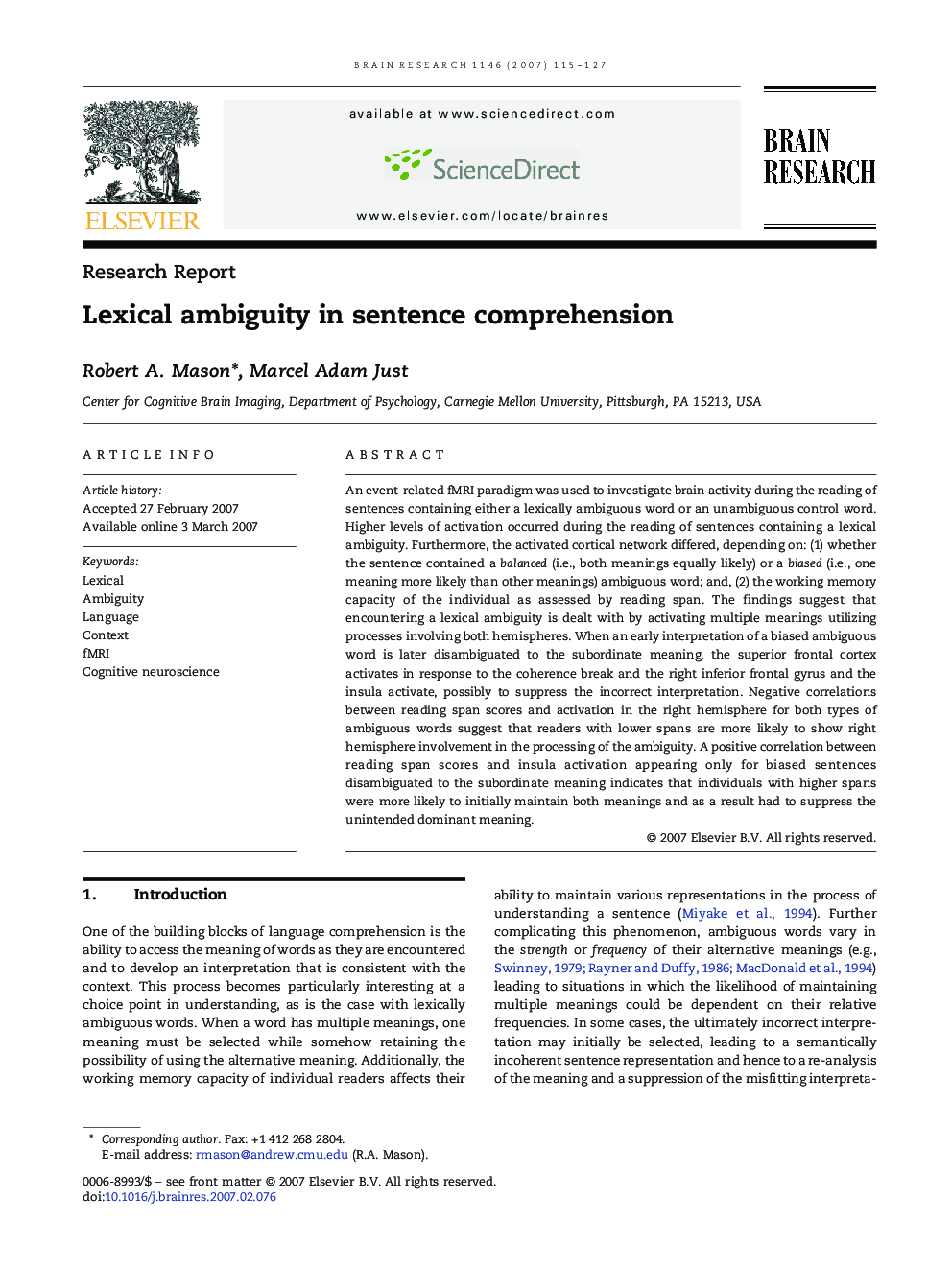| Article ID | Journal | Published Year | Pages | File Type |
|---|---|---|---|---|
| 4331243 | Brain Research | 2007 | 13 Pages |
An event-related fMRI paradigm was used to investigate brain activity during the reading of sentences containing either a lexically ambiguous word or an unambiguous control word. Higher levels of activation occurred during the reading of sentences containing a lexical ambiguity. Furthermore, the activated cortical network differed, depending on: (1) whether the sentence contained a balanced (i.e., both meanings equally likely) or a biased (i.e., one meaning more likely than other meanings) ambiguous word; and, (2) the working memory capacity of the individual as assessed by reading span. The findings suggest that encountering a lexical ambiguity is dealt with by activating multiple meanings utilizing processes involving both hemispheres. When an early interpretation of a biased ambiguous word is later disambiguated to the subordinate meaning, the superior frontal cortex activates in response to the coherence break and the right inferior frontal gyrus and the insula activate, possibly to suppress the incorrect interpretation. Negative correlations between reading span scores and activation in the right hemisphere for both types of ambiguous words suggest that readers with lower spans are more likely to show right hemisphere involvement in the processing of the ambiguity. A positive correlation between reading span scores and insula activation appearing only for biased sentences disambiguated to the subordinate meaning indicates that individuals with higher spans were more likely to initially maintain both meanings and as a result had to suppress the unintended dominant meaning.
